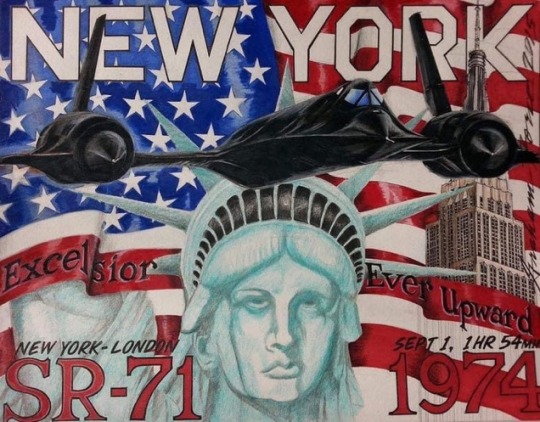#50 states is excessive
Explore tagged Tumblr posts
Text
Thoughts on the 50 states of America
(All jokes, me and my friend made this out of pure boredom)
1. Alabama---incest is only cool of you're a Victorian noble family
2. Arkansas is actually spelled Arkansaw
3. Why is Arizona so damn hot???
4. Kansas--Not Kansaw
5. New York is full of rats and turtles
6. Just leave Alaska to the Canadians
7. Guys please just leave Hawaii alone
8. California girls we're unforgettable
9. What even is New Jersey?
10. Illinois--Chicago
11. Do we really need Delaware?
12. Colorado
13. Connecti-cut it out of here
14. Do we really need Maryland?
15. Florida--leave.
16. Georgia- ass state 🍑
17. Washington--cold brrrrr 🥶
18. Nevada--Gamble away your first born son
19. Oregon smells like weed
20. West Virginia, mountain mama (country roads, take me home)
21. North Carolina--North of South Carolina
22. Idaho's only purpose is to fuel America's growing population of fast food addicts (me)
23. South Carolina--South of North Carolina
24. Kentucky fried chicken
25. Louisiana only exits in Disney's "Princess and the Frog"
26. Hannah Montana
27. Michigan is just a lake
28. Nebraska--doesnt actually exist
29. Tennessee whiskey
30. Texas--yeehaw brother. Beer, Ford F150, Cowboy hats yeahhh
31. Maine only exits in Disney's "Bunk'd"
32. I am in Missouri
33. Mississippi- I only know how to spell it
34. Oklahoma<-- better as Jack Stauber's "Oh klahoma"
35. Heaven, Iowa
36. You are a Virginia
37. North Dakota-North of South Dakota
38. South Dakota-South of North Dakota
39. Wisconsin only exists in Disney's "Liv and Maddie"
40. Do we really need Rhode Island?
41. Pensilyvainia <-- Literally a hotel with monster dilfs wtf42. Vermont (unnecessary
42. Arkansaw
43. New Hampshire---Wheres old Hampshire???
44. Ohio no.
45. New Mexico---WHERES OLD MEXICO????
46. Utah- I did a math problem about the area of Utah
47. (Why)oming
48. Do we really need Macassucutes?
49. Are we sure we need Indiana?
50. Minnesota is actually a soda brand
1 note
·
View note
Text
September 20, 2024
October 1, 2024
You'll probably need a vpn to visit this page, the text of it reads:
In its sitting on Monday, the Knesset Plenum voted to approve in first reading the Bill for Cutting Off the State of Israel's Relations with the United Nations Relief and Works Agency for Palestine Refugees in the Near East (UNRWA) and Declaring it a Terrorist Organization, 2024, sponsored by MK Yulia Malinovsky (Yisrael Beitenu) and a group of MKs. In the vote, 50 Members of Knesset supported the bill, versus 10 who opposed it, and the bill will be returned to the Foreign Affairs and Defense Committee for deliberation.
It is proposed to declare the United Nations Relief and Works Agency for Palestine Refugees in the Near East (UNRWA) as a terrorist organization. It is further proposed that the State of Israel sever its relations with UNRWA, both directly and indirectly.
MK Malinovsky, the bill's sponsor: "We have to perform a surgical [cut] here and end the event. We are on the UN's blacklist in any case. All the excessive morality ended on October 7. UNRWA is a terrorist organization, and not only in Jerusalem. It is afifth-column within the State of Israel. And not just municipal property tax benefits-everything should be revoked from them. The fact that this hasn't happened until now, for seven months--is a disgrace. What is happening today is a badge of honor for the Knesset and for the Members of Knesset. The fact that we succeeded in joining hands, coalition and opposition--that is a very important statement for the Government. We did a wonderful job together with all the partners to these bills."
The explanatory notes to the bill state: "In the months after the outbreak of the Swords of Iron war, investigative reports were revealed regarding the involvement of the workers of the United Nations Relief and Works Agency for Palestine Refugees in the Near East (UNRWA) in the Gaza Strip in the murderous terrorist offensive that began on October 7, 2023, such as participation in acts of murder and massacre, kidnapping Israeli citizens to the Gaza Strip and providing vehicles and equipment for the purpose of the offensive. Reports were also published regarding the membership of these workers in the Hamas and Islamic Jihad organizations,
"The above attests to the close relationship that exists between UNRWA and terrorist activity for all intents and purposes, in a manner that is no different from the activity of organizations that have been declared as terrorist organizations by law. Therefore, it is proposed to declare that UNRWA is a terrorist organization as defined in the Counter-Terrorism Law, 2016."
October 7, 2024
October 8, 2024
In that same spirit, we are following with deep concern the Israeli legislative proposal that could alter UNRWA’s legal status, hindering its ability to communicate with Israeli officials, and removing privileges and immunities afforded to UN organizations and personnel around the globe. This legislative proposal reflects the significant distrust between Israel and UNRWA.
Israel has alleged – and the UN, in some cases, has confirmed – that a small percentage of UNRWA employees have ties to Hamas and other terrorist groups. Israel has also conveyed concerns about Hamas misusing UNRWA facilities and the United States shares these concerns.
At the same time, we know that UN personnel, including from UNRWA, are vital to the humanitarian response in Gaza and face tremendous danger while performing their work.
And so, Israel needs to provide UNRWA additional information regarding these allegations, and UNRWA needs to have in place a process to address these concerns seriously and urgently, and make faster progress on the much-needed reforms outlined in the Colonna report.
Simply put: It is in no one’s interest for the neutrality of UNRWA’s personnel to remain in doubt.
October 9, 2024

October 14, 2024
The bare minimum required from the US to curtail further Israeli atrocities would be the cessation or curtailing of munitions, logistical support, diplomatic cover, and US military presence in defense of Israel. None of these actions are on the table according to Biden, Harris, or Trump. Israel is creating a legal framework to justify the systemic targeting of UNRWA aid workers and facilities, a practice which the US has made it clear it will defend through inaction, if not active participation. It will issue hollow condemnations and statements of concern, urge Israel to investigate, then move on, pretending like nothing happened.
372 notes
·
View notes
Note
i need a list of your shortest facts to read off to friends in udder dead pan. most of the recent facts are too long to read off.
My shortest few factoids-
I've never written any short factoids.
I never tried to do one.
Short facts are hard.
Billionaire Howard Hughes once attempted to make a film of 20,000 Leagues Under the Sea and the production would become one of Hollywood’s greatest disasters, taking the lives of over 90 actors and crew, costing nearly half a billion dollars, destroying an entire island, and almost causing a 3rd world war. A party was held to mark the start of production at one of Hughes’ seaside homes and was sadly marred when a drunken Hughes began shooting into the air with his crossbow and killed an albatross, which fell into the punch bowl, offending several actors, who departed the production. This caused a massive production delay during which Hughes bought up over 50 warehouses (including the world’s largest building at the time) to hold the sets and specially built water tanks until casting was replenished. Two of these warehouses burned down (including the world’s largest building fire at the time), destroying the sets which then had to be rebuilt. By the time Hughes decided to cast unknown actors in the lead roles, ten more major set pieces had rotted away delaying the production further. Finally in October of 1948 the new sets and all actors were in place on the luxurious island of Bikini Atoll. The crew was to arrive at the shooting location on October 26th but was delayed by weather. This turned out to be a good thing as the United States conducted an unannounced nuclear test on October 27th, annihilating the island and the sets completely. The island is still toxic, and Howard Hughes, who owned the island, was compensated only $212 for his losses by the government. Undeterred, Hughes began again with fresh sets, and new actors as the previous group had long since departed by 1950. This time, production finally began and footage was shot. It was never developed however because despite the expenditure of $800,000 on pyrotechnics for the first scenes shot, nobody had thought to temperature-protect the film canisters, which were opened at the lab and found to have melted completely into what amounted to large plastic pucks. Hughes filmed the scene again, at the same cost, and then a third time when he was not satisfied with a background extra’s hair. This new footage too was lost when it was captured by rebellious 1950s teenagers who held it for ransom. They asked only $50 but Hughes refused to pay on principle. The actors and crew were even more upset than Hughes that their work had been for nothing and so began the “Leagues Riots” of 1951. What sets remained were once more burned down, this time in protest. Then the real problems began. By then, the Disney production was under way and Hughes spent millions more to spy on and sabotage the rival production. Several Disney employees fell victims to car bombs, others to arsenic poisoning, and one to auto-erotic asphyxiation, but Hughes was not considered responsible for that particular event. Walt Disney, of course, declared war. The “War Between The Sets” began in 1953 as Hughes forces were driven off by Disney’s hired guns, the Mouseketeers which in those days were a fully armed paramilitary force. This skirmish took seven lives, but it was only the beginning. Hughes used his government contracts to secure two bombers and arms weighing in excess of 500 tons, all of which were dropped on Disney owned installations. Disney’s retaliation was severe. Hughes hotels burned days after, there were so many fires that Vegas and LA were both lit as bright as daylight even at midnight from the blazes. Hughes responded with bombings and drone strikes, with “drone strikes” in 1953 referring to dropping bees on ones enemy. The conflict at one point threatened to spill over into Russia’s Southern American interests, leading the president to demand Hughes back down before turning the cold war into a nuclear conflict. By the time a truce was called, Disney’s film was in theaters and Hughes was ready to call it a loss.
Mice can't fart.
303 notes
·
View notes
Note
What are some feasible short-term (i.e. not “revamp the global economy entirely”) alternatives to current IP laws? I can’t imagine a popular content free-for-all that the largest corporations will inevitably win is the intended effect, so are oppositions to it part of larger plans for changes to the market, or a mostly philosophical stance, or…?
i just can't emphasize enough that a 'free-for-all' would in fact be significantly worse for the largest corporations than the current system of IP. like in terms of, yknow, 'defending small creators from large corporations' or any other positive effect you could possibly want IP to have. the current state of IP law is significantly worse than nothing. for example, if there was no such thing as IP law, all the creators i mention in this post would be able to make and sell and profit from works featuring their characters!
to answer your question though--in terms of a comparatively specific and short-term goal that could hypothetically happen under capitalism, i think rolling back the extensions of the 1998 and 1976 copyright acts to bring US copyright back to life+50 years would be a good start, as would implementing 'use-it-or-lose-it' provisions that automatically revert rights to creators if the holders are not actively using the IP. these would obviously not fix any of the broader problems but would be a start on preventing some of the most egregious excesses of the system
430 notes
·
View notes
Text




The Stupendous Alligator Snapping Turtle
Alligator snapping turtles (Macrochelys temminkii) are one of three recognised species of snapping turtle, all of which are found in North America. This particular species is found in the southeastern United States and the Mississippi Basin in particular. Macrochelys temminkii prefers deep freshwater, and is especially common in deep rivers, wetlands, and lakes.
The alligator snapping turtle is the largest freshwater turtle in North America, and is one of the heaviest in the world. Most individuals weigh between 70-80 kg (154-176 lbs), and are about 79-101 cm (31-39 in) long. However, the largest verified indiviual weighed over 113 kg (249 lb), and many others have been recorded in excess of 100 kg. The species is easily identifiable by its large, boxy head and thick shell with three rows of raised spikes. Typical alligator snapping urtles are solid black, brown, or olive green, though the shells of many older individuals can be covered in green algae.
M. temminkii is famous for its strong bite, which is most often utilised when feeding. The turtle's tongue resembles a worm, and at night individuals lie on the bottom of the river or lake bed with their mouths open. Fish are enticed by the bait-tongue, and when they get close enough the alligator snapping turtle's mouth clamps down around them. In addition to fish, this species may also feed on amphibians, invertebrates, small mammals, water birds, other turtles, and even juvenile alligators where their territories overlap. The alligator snapping turtle's relies on ambush techniques, and so hunters can remain submerged for up to 40 minutes. In some cases, individuals can also 'taste' the water to detect neaby mud and musk turtles. Because of this species' thick shell and ferocious bite, adults have few predators, but eggs and hatchlings may fall prey to raccoons, predatory fish, and large birds.
This species spends most of its time in the water, only emerging to nest or find a new home if their current habitat becomes unsuitable. Mating occurs between Februrary and May, starting later in the northern regions of the species' range. Males and females seek each other out, but generally don't travel great distances. About two months after mating, females dig a nest near a body of water and deposit between 10-50 eggs. Incubation takes up to 140 days, and the average temperature of the nest determines the sex of the hatchings; the hotter it is, the more males are produced. In the fall, hatchings emerge and are left to fend for themselves. Sexual maturity is reached at between 11 and 13 years of age, and individuals can live as old as 45 years in the wild.
Conservation status: The alligator snapping turtle is listed as Vulnerable by the IUCN. The species is threatened by overharvesting for meat and for the pet trade, and by habitat destruction.
If you like what I do, consider leaving a tip or buying me a ko-fi!
Photos
Ed Godfrey
Cindy Hayes
Eva Kwiatek
Nathan Patee
#alligator snapping turtle#Testudines#Chelydridae#snapping turtles#freshwater turtles#reptiles#freshwater fauna#freshwater reptiles#lakes#lake reptiles#wetlands#wetland reptiles#rivers#river reptiles#north america#southern north america#animal facts#biology#zoology
462 notes
·
View notes
Text
Hyperkalemic Periodic Paralysis (HYPP)
Breeds with HYPP; Quarter Horses, American Paint Horses, Appaloosas, and Quarter Horse Crosses.
HYPP
"An inherited disease of the muscle, caused by a genetic defect. A mutation in the sodium channel gene. Sodium channels are pores in the muscle cell membrane which control contraction of the muscle fibers. When the defective sodium channel gene is present, the channel becomes “leaky” and makes the muscle overly excitable and contract involuntarily. The channel become “leaky” when potassium levels fluctuate in the blood. This may occur with fasting followed by consumption of a high potassium feed such as alfalfa. Hyperkalemia, which is an excessive amount of potassium in the blood, causes the muscles in the horse to contract more readily than normal. This makes the horse susceptible to sporadic episodes of muscle tremors or paralysis."
GENOTYPE
HYPP Positive= H/N and H/H
HYPP Negative= HYPP N/N
HYPP horses with H/N genotype means they are heterozygous carriers, carrying one copy of the HYPP gene. If you bred a mare who is H/N to a stallion who is N/N, you would have about a 50% chance the foal is H/N as well. However if you bred an H/N mare to an H/N stallion you will have about a 25% chance the foal being N/N, a 50% chance it will be H/N, and a 25% chance it will be H/H.
HYPP horses with the H/H genotype means it is homozygous, carrying both copies of the HYPP gene. 100% passing the HYPP gene to it's offspring.
I made a thing in case it helps the visual learners out there

IMPRESSIVE (but not really)
Let's talk about the QH stallion, Impressive. All horses that have a HYPP positive gene of any kind, all descend from this horse. Impressive sired 2,250 foals and they estimate he has around 50,000 living descendants. No dilution of lineage will remove HYPP, as it is a dominant trait and will show whether you are 5 generations back or 2.
HYPP SYMPTOMS
HYPP varies in severity, it's not always equal and every horse may have different reactions. HYPP can be confused for tying-up or even colic, they may have difficulty breathing, muscle tremors, sweating, weakness, tremors. In more severe cases the horse may collapse from paralysis of the muscles in the airway and can result in sudden death.
Not every horse who is HYPP positive may display symptoms, making this disease sometimes hard to detect.
IS IT CURABLE?
No. HYPP may be managed with diet and certain medicines for maintenance but it cannot be cured. H/H positive horses have poor prognosis and can be much more difficult to manage.
VIDEOS OF HYPP ATTACKS
CW: Horses in distress, videos may be hard to watch for some.
Video 1
Video 2
Video 3
Video 4
Video 5
Sources (and if you want to read more); AAEP , UCDavis, Tri-State
Is there anything I forgot? Anything to add? Just covering the basics of this disease and what it does to these horses.
251 notes
·
View notes
Text
Criminalizing marital rape would be “excessively harsh,” the Indian government has said, in a blow to campaigners ahead of a long-awaited Supreme Court decision that will affect hundreds of millions of people in India for generations. In India, it is not considered rape if a man forces sex or sexual acts on his wife, as long as she is over 18, due to an exception in a British colonial-era law. Most Western and common law jurisdictions have long since rectified this – Britain outlawed marital rape in 1991, for example, and it is illegal in all 50 US states.
Continue Reading
50 notes
·
View notes
Text
Veiled by discussion of headline global trends in new renewables capacity investment is the fact that almost all the incremental progress is currently being made in one country: China. Trumpeting 2023’s 50 percent growth in annual global capacity installations as a global achievement is wrongheaded, given that China by itself delivered nearly 80 percent of the increment. And the IEA, for its part, expects China to continue to be the sole meaningful over-achiever. It recently revised upwards by 728 GW its forecast for total global renewables capacity additions in the period 2023–27. China’s share of this upward revision? Almost 90 percent. While China surges ahead, the rest of the world remains stuck. This raises a crucial question. What is different about the development of solar and wind resources in China from the rest of the world? The main answer is that in China, such development is capitalist in only a very limited sense. Certainly, the entities centrally involved in building out new solar and wind farms in China are companies. But almost all are state-owned. Take wind. Nine of the country’s top 10 wind developers are owned by the government, and such state-owned players control in excess of 95 percent of the market. Moreover, the state is far from being a passive shareholder in these companies. The companies are best seen as instruments wielded by the state in the service of achieving its industrial, geopolitical, and – increasingly – environmental objectives. The best example of this concerns the gargantuan ‘clean energy bases’ first announced by President Xi Jinping in 2021. To be built mainly in the Gobi and other desert areas by 2030, these new bases will have a combined capacity of in excess of 550 GW – more than Europe’s total solar and wind capacity at the time of this writing. Such development is as far from ‘capitalist’ as is imaginable. This is the state, in its most centralized and authoritative form mustering whatever resources it needs at its disposal to ensure that it delivers what it has said it will deliver. Add to this the fact that the banks financing all the new renewables development in China are generally also state-owned and directed, and a stark reality comes into focus. This is essentially central planning in action. Does the profit motive figure? To be sure, it does. But usually only marginally, and it is ridden roughshod over whenever Beijing deems fit.
111 notes
·
View notes
Text

BROADS AND BROADSWORDS VOLUME 2 PREORDERS ARE NOW OPEN!
Broads and Broadswords is a celebration of varied women, varied genders, and the swords and blades that love them. This zine collects more than 75 pages of original colour illustrations and comics from 50+ independent artists in a perfect bound book, available in both digital and print format.
Pricing:
Digital Copy: $9 USD
Physical Copy (includes digital): $22 USD
Physical Copy (includes digital) + damaged* copy of Volume 1: $24 USD
Physical Copy (includes digital) + undamaged* copy of Volume 1: $30 USD
*Damaged Volume 1 copies are available as a one-time offer due to an issue with the bindings during the Volume 1 printing. A small number of undamaged Volume 1 copies are available as a one-time offer due to an excess of undamaged Volume 1 copies remaining in stock after the Volume 1 reprint. You will NOT receive a digital copy of Volume 1.
Shipping:
United States: $5 USD for the first physical copy plus $2 for each additional physical copy purchased
International: $20 USD for the first physical copy plus $5 for each additional physical copy purchased
By reblogging this post you are also a part of our GIVEAWAY! Two winners will be drawn at the end of the pre-order period and one winner will receive a free copy of the Volume 2 digital zine, the other will receive a free copy of the Volume 2 physical zine. (If you win the giveaway but already purchased the zine, you will be refunded in full.) You can only reblog once a day, but the more reblogs, the better your odds, so keep at it!
Broads and Broadswords is a charity zine, and proceeds will go to the Transgender Law Center.
#broads and broadswords#broads and broadswords zine#lgbt zines#art zine#zines#armor#zine#art zines#nobinary zine#lgbtq#fantasy art#queer zines#broadswords#digital art#queer zine#women with swords#paladins#swords#fantasy zine#wlw zine#lgbt zine#sapphic#wlw zines#illustration#digital illustration#charity zine#lgbt#lgbtq zine#girls with swords#arms and armor
788 notes
·
View notes
Text

Anne Applebaum :: @anneapplebaum
This was the moment that mattered. Trump's political movement relies on total impunity for liars, and mostly gets it. The lies bind them together, cement their feeling of power.
* * *
LETTERS FROM AN AMERICAN
October 1, 2024
Heather Cox Richardson
Oct 02, 2024
More than 45,000 U.S. dock workers went on strike today for the first time since 1977, nearly 50 years ago. The International Longshoremen's Association union, which represents 45,000 port workers, is negotiating with the United States Maritime Alliance (USMX) employer group over a new contract. The strike will shut down 36 ports from Maine to Texas, affecting about half the country’s shipping. Analysts from J.P. Morgan estimate that the strike could cost the U.S. economy about $5 billion a day. The strikers have said they will continue to unload military cargo.
Dockworkers want a 77% increase in pay over six years and better benefits, while USMX has said it has offered to increase wages by nearly 50%, triple employer contributions to retirement plans, and improve health care options. In the Washington Post, economics columnist Heather Long pointed out that the big issue at stake is the automation that threatens union jobs.
Although the strike threatens to slow the economy depending on how long it lasts, President Joe Biden has refused requests to force the strikers back to work, reiterating his support for collective bargaining. He noted that ocean carriers have made record profits since the pandemic—sometimes in excess of 800% over prepandemic levels—and that executive compensation and shareholder profits have reflected those profits. “It’s only fair that workers, who put themselves at risk during the pandemic to keep ports open, see a meaningful increase in their wages as well,” Biden said in a statement.
In the presidential contest, the Trump-Vance campaign is trying to preserve its false narrative. In Wisconsin today, Trump accused Vice President Harris of murder—although he appeared to get confused about the victim—and claimed that she has a phone app on which the heads of cartels can get information about where to drop undocumented immigrants. He also said that Kim Jong Un of North Korea is trying to kill him.
When asked if he should have been tougher on Iran after it launched ballistic missiles in 2020 on U.S. forces in Iraq, leaving more than 100 U.S. soldiers injured, Trump rejected the idea that soldiers with traumatic brain injuries were actually hurt. He said “they had a headache” and said he thought the attack “was a very nice thing because they didn’t want us to retaliate.”
Trump also backed out of a scheduled interview with 60 Minutes that correspondent Scott Pelley was slated to conduct on Thursday. 60 Minutes noted that for more than 50 years, the show has invited both campaigns to appear on the broadcast before the election and this year, both campaigns agreed to an interview. Trump’s spokesperson complained that 60 Minutes “insisted on doing live fact checking, which is unprecedented.” Vice President Kamala Harris will participate in her interview as planned.
The campaign’s resistance to independent fact checking of their false narrative came up in tonight’s vice presidential debate on CBS between Minnesota governor Tim Walz, Democratic presidential candidate Kamala Harris’s running mate, and Ohio senator J.D. Vance, running mate for Republican presidential candidate Donald Trump. CBS Evening News anchor Norah O'Donnell and Face the Nation moderator and chief foreign affairs correspondent Margaret Brennan moderated the debate.
Walz’s goal in the debate was to do no harm to Vice President Harris’s campaign, and he achieved that. Vance’s goal was harder: to give people a reason to vote for Donald Trump. It is doubtful he moved any needles there.
The moments that did stand out in the debate put a spotlight on Vance’s tenuous relationship with the truth. When Vance lied again about the migrants in Springfield, Ohio, who are in the United States legally, Brennan added: "Just to clarify for our viewers, Springfield, Ohio, does have a large number of Haitian migrants who have legal status."
Vance responded: "The rules were that you guys weren't going to fact-check.”
There were two other big moments of the evening, both based in lies. First, Vance claimed that Trump, who tried repeatedly to repeal or weaken the Affordable Care Act, “saved” it. Then, Walz asked Vance directly if Trump lost the 2020 presidential election. Vance refused to answer, saying he is “focused on the future,” and warned that “the threat of censorship” is the real problem in the U.S.
Walz said: “That’s a damning non-answer.”
Former chair of the Republican Party Michael Steele said after the debate: “I don't care where you are on policy…. If you cannot in 2024 answer that question, you are unfit for office.”
It was significant that Vance tried to avoid saying either that Trump won in 2020—a litmus test for MAGA Republicans—or that he lost, a reflection of reality. While this debate probably didn’t move a lot of voters for the 2024 election, what it did do was make Vance look like a far more viable candidate than his running mate. Waffling on the Big Lie seemed designed to preserve his candidacy for future elections.
It seems likely that the message behind Vance’s smooth performance wasn’t lost on Trump. As the debate was going on, Trump posted: “The GREAT Pete Rose just died. He was one of the most magnificent baseball players ever to play the game. He paid the price! Major League Baseball should have allowed him into the Hall of Fame many years ago. Do it now, before his funeral!”
Former Cincinnati Reds baseball player Rose died yesterday at 83.
LETTERS FROM AN AMERICAN
HEATHER COX RICHARDSON
#Anne Applebaum#Letters From An American#Heather Cox Richardson#election 2024#MAGA Republicans#JDV#Walz#VP Debate#longshoremen#dockworkers
30 notes
·
View notes
Text
The Floating Causation of Vulgar Anti-Racism
Post for August 12, 2024 ~7,400 words, 36 minutes
-★-
The late 20th century and the early 21st century were an excellent time for 'catch-up' development in under-developed countries. For example, the GDP per capita of the People's Republic of China rose from $312 in 1980, to $12,720 in 2022, more than a 40x increase. This is despite the People's Republic being nominally communist, 92% Han Chinese, and one of the largest potential geopolitical rivals to the United States. This is not a one-off – exports from the Socialist Republic of Vietnam to the United States rose from $50 million in 1994 to $114 billion in 2023.
While the ideologically liberal government of the United States did invade Iraq and Afghanistan, and placed strict limits on Iran, in practical terms, the United States was willing to direct hundreds of billions of dollars of demand, for everything from disposable gloves to rice cookers, to countries that were neither majority white nor, officially, capitalist, which allowed these countries to build up their industrial base.
Inside the United States, as of the early 2020s, Americans of Indian descent, Americans of Asian descent, and a number of other non-white groups are outperforming the median household income of white Americans. It's not uncommon to see an Indian-American as the CEO of a major US corporation, such as Microsoft's Satya Nadella, Google's Sundar Pichai, or IBM's Arvind Krishna. And while Americans of Nigerian descent aren't earning quite as much money as Sundar Pichai, they are doing better than the U.S. national average. [1]
The American economy is willing to award non-white Americans and non-white immigrants with average pay higher than that the average pay for white Americans, and American society is willing to award members of these same groups with highly prestigious positions – Google is one of the most famous American companies, and to be its CEO is highly prestigious indeed.
Why is it that vulgar anti-racists aren't content to leave well enough alone on negative racial messaging, and take advantage of this opportunity to focus on personal development, ingroup development, and national development? Why is it that they have a strange totalitarian bent, such as Ibram Kendi proposing to give veto power over all government policy to a body of unappointed race experts, which would de facto end democracy?
Last month, @max1461 wrote a post, attempting to find a balanced compromise between the social justice movement and its critics in the discourses on racism over the past 10 years. Perhaps this was intended to close the books and allow the participants to move to a saner footing going forward. Subsequently, Max flagged the post as unrebloggable in order to prevent it from being beat up like a piñata. Near the end of the initial chain, Max wrote:
I can’t stress enough that, for all the excesses of DEI seminars and modern anti-racist academia and whatnot, for however unhelpful or even regressive these things may often be, what they exist in response to is fundamentally a horror of an entirely different and incomparable scale; something unspeakably evil and destructive. And, after 200 years of such an evil world order, which only really began to melt in 1945, I think it would be incredibly naive to believe that all the wounds are now healed.
It would seem that for the most part, the wounds that Japan suffered from America in World War II have already healed. The country already went through reindustrialization, followed by a boom period (which startled Westerners), and then a subsequent crash and the 'lost decade' of the 1990s. The Japanese have a favorable view of the United States, as perhaps they should – Japan has prospered in the Post-WW2 international order, in which they can simply purchase whatever materials they need on global markets with no need to invade or occupy anyone.
Yet for others, the past lingers on.
Ibram Kendi is one of the most famous contemporary self-identified anti-racists, a New York Times bestselling author (his most famous book was titled "How to Be an Anti-Racist") who was not only platformed by major corporations such as Microsoft (in 2020, an advertisement on the login screen of Windows 10 computers linked to a search for "anti-racism books," with his at the top), but even received funding for his own anti-racism center (now under attack for its ineffectiveness).
At one time, Ibram Kendi thought that white people were aliens. A roommate talked him out of it, asking how it was that white people could have children with everyone else if that were the case. To his credit, Kendi did change his mind.
...but how could anyone have come up with Kendi's conclusion in the first place?
In school in the United States, children are taught that the Spanish conquered the Aztecs. It is true that Spanish military forces brought about the downfall of the Aztec Empire, but often people forget the details of what they learned in school, and often what they learn in school is itself a simplified story, designed to be told to children. Encyclopedia Britannica's summary of the Battle of Tenochtitlan largely agrees with the gist of Wikipedia's more detailed article on the Fall of Tenochtitlan, which is littered with instances of "[citation needed]."
Wikipedia, however, provides more numbers. In particular, Wikipedia's version provides one of the Internet's favorite parts of wiki battle articles, a listing of the balance of opposed forces (with citations):

There is a racist narrative of the conquest of the Americas in which the brave Spanish explorers overcame the savage, human-sacrificing hordes of the Aztecs. There is an inverted, anti-racist narrative of the conquest of the Americas in which the powerful, cruel Spanish showed up to oppress the weak, innocent Aztecs.
And then there is a third narrative - a narrative that politics happened. A number of tributary states had grievances with the Aztecs, and the small number of Spanish probably didn't seem like enough to conquer the whole territory from the perspective of the tributaries, but did seem powerful enough to rally around to fight the Aztecs and win.
Nobody comes out looking good in this third narrative. The Spanish brought about a brutal war with tens of thousands of casualties, and devastating disease followed their arrival. The Aztecs and tributaries combined failed to overcome a foreign invasion due to (relative to the foreigners being from another continent) local infighting. The Aztecs were awful enough that a number of tributaries sided with an army of foreigners against them.
Now, suppose that we delete the 200,000 native allies from the balance of forces above, but still record a victory for the Spanish. The effect of the native allies remains, but the cause of that effect disappears. This creates an effect without a cause – unattributed causation, which is disconnected from what came before, or what we might call, "floating causation."
Some might call overcoming a force of 80,000 with only 1,000 or so men a miracle. For those not so inclined, the 'floating' causation gets attributed to the Spanish soldiers – their equipment, their valor, their tactics, and their discipline. Each of a thousand Spanish infantrymen is now somehow worth 200 native warriors.
In this cartoon version of history, the Spanish are an unstoppable psychic warrior race. Their steadfast will in the face of danger and their unit cohesion are quite nearly inhuman, and their technological advantage is overwhelming. The natives have not merely made a political miscalculation similar to others of the pre-modern era, such as the decisions of states facing Genghis Khan, but are buffoons to the slaughter, incapable of putting up any real defense.
In this cartoon, the Spanish can go anywhere. They can do anything. And because of this, they are the only people with agency in the whole world.
They sound... like aliens.
Trying to rebalance this cartoon only leads to greater absurdities, such as the idea that only Europeans ever meaningfully engaged in conquest (contradicted by Genghis Khan), or that industrial technology and its resulting pollution are "European" in nature (China has been quite aggressive about industrializing), or that only "European" countries waged modern and industrialized wars of conquest (the Empire of Japan used guns, bombs, and tanks as part of its project to create the Greater East Asia Co-Prosperity Sphere).
All three of the above counter-examples are from Asia, which is usually conspicuously absent from self-identified anti-racist thinking, but none of them are obscure.
-★-
It is my belief that floating causation is a source of distortions across the ideological spectrum.
Ideology is not independent from human beings. Manifestos, one might say, do not print themselves. From the other direction, it is not a piece of paper which murders somebody – it is a human being who pulls the trigger.
There is ideology, which is a system of related rules and beliefs, and there are adherents who adopt ideology, spread beliefs, and put ideological rules into practice.
An ideology can contain taboos which prohibit noticing or explaining the true cause of some outcome, separating the cause from its effect. Practitioners can then attribute that effect to a preferred ideological construct instead, making it seem much more powerful, and often dangerous, than it really is.
The Elephants
Imagine (as this example is entirely made-up) that there is some village in which elephants are considered sacred, but the elephants in the area have a habit of trampling crops in the night. To avoid loss of face, the damage to crops is attributed to "bandits" by an initial group of elders. The young children who do not know better are then taught this explanation. Later, after the death of the elders, the initial truth is lost. Anyone claiming to have seen elephants trampling the fields is denounced as choosing the vile bandits over the virtuous elephants. An outsider who did not realize what was happening might be quite impressed to hear that a bandit in the region ruined a dozen fields in a single night, and assume that the bandit has tremendous physical stamina.
But floating causation is not necessarily the result of an ideological taboo. Someone may be ignorant about the cause of an effect, unable to understand the process by which an effect came about, have powerful emotions about the topic which they are unwilling to confront or may not even be aware of, or may simply have poor judgment. An adherent may be drawn to an ideology for these reasons.
Continuing with our example, a fresh-off-the-boat colonial administrator arriving at the village might be unaware that elephants exist, or trample crops, and conclude that there were ongoing feuds driven by animosity among the villagers, with bandits as the cover-story. Alternatively, the new colonial administrator might love the elephants and hate the villagers, and be unwilling to consider the possibility that the elephants are trampling the crops, including cooking up rather elaborate rationalizations.
Ideology
Issues with not understanding a process are more likely to come up with things like economics – occasionally a worker will post a video to social media complaining that he is not paid the full value of the items he sells or creates, ignoring all the money that went into the construction of the facility, the work from other workers putting together the input materials, and so on.
Liberals in the late 00s and early 2010s had an interest in memetics, which concerns the replication and spread of ideas. (This field is where the term "Internet meme" comes from.) Then, as now, they had a tendency to treat people as too similar to each other, and some of them leaned towards the idea that any person could hold any ideology. Ideologies do (in my judgment) influence behavior – there are far fewer monarchists around these days, and far fewer monarchs with real power, for example – but how a set of beliefs is expressed depend on the emotions, motives, and temperament of the person who holds those beliefs.
So do people choose ideologies, or do ideologies choose people?
One way to view this matter is as a cycle. Someone's social environment is partly a matter of choice, and partly a matter of circumstance. The ideologies that show up in someone's environment are generally going to be ones that spread (as ideologies that don't attract new adherents will die out), but which ideology someone actually chooses and how they practice it will be influenced by what type of person they are.
Another way to view this matter is that emotions, motives, temperament, and beliefs are all things that make certain actions or thoughts either easier (and cheaper) or more difficult (and more expensive). A drug addict who believes in hard work and free market capitalism, but finds himself stealing to feed his habit, may find that the influence of his beliefs is not enough to overcome his addiction. (He is likely to feel miserable.) However, when a religious person is choosing what time of day, or day of the week, to worship, the explicit belief of their religion is likely to have a great deal of influence.
Yet another way to view this matter is to treat things like social relations, ideology, and temperament as interacting layers, and then propose that politics spans multiple layers.
Human Talent
I don't believe that all human beings are equally talented, and I don't believe that they all have identical temperaments. Therefore, one of my beliefs is what might be called the "human capital theory of movements." Ideologies consist of networks of related beliefs which can be used to interpret the world, to guide behavior, or to create arguments. But ideologies do not create beliefs or arguments themselves. Humans do.
When a movement has a lot of talented, virtuous people working for it, these people can create new arguments in order to win debates, and change parts of the ideology, the network of beliefs, to adapt the network to changes in conditions. Without talented people, the ideology of a movement will drift farther from environmental conditions, causing its responses to become more misaligned with conditions on the ground.
Talented people are also needed for the implementation of an ideology. An ideological book is just an inert text. No matter how complex it may be, it is fundamentally limited in its complexity. Applying that text in the environment, bridging the gap between what the text says and what that means in the reality of a specific situation, requires both intelligence and good judgment. Not every person is equally talented, and not every person is equally informed. If someone more talented and with better judgment is around, they can read the situation and come up with some simpler rules or orders for others to follow.
The less talented the adherents of a movement are, the lower the ability of the movement to adapt to conditions over both the short-term and the long-term.
A shift in the distribution of talent can precede other forms of political change. Ideologues may smile as the most disagreeable members are driven out of their movement, but at the same time, the lack of criticism will reduce the movement's ability to respond to change.
There are trade-offs. The use of floating causation may make an ideology less aligned with reality, but it may also be useful for the movement to stoke the emotions of their followers in order to drive action. (This emotional motivation bit is why every election in the United States is "the most important in your lifetime.")
-★-
Beliefs are not intelligence. Nonetheless, a person with a belief may act as though they are smarter (or even wiser) than they actually are. This is just the nature of knowledge (as cached intelligence, wisdom, and observation).
I developed the talent theory in the prior section by observing opposition to racism in the United States prior to 2014. In the United States between 2000 and 2014, there was substantial support for individualist "colorblindness," while at the same time, there was immense social pressure against overt white racial organizing.
Racial organizing takes time and effort. Because white Americans were not subject to racial discrimination, they could simply go out into the market and earn what their work was worth. For talented white Americans, the gains from white racial organizing would be marginal, so the penalties could easily overcome those gains. The less talented would have the most to gain due to the ability to reduce the amount of economic competition they would be up against, but they were also less able to organize. [2]
There was somewhere famous for white racial organizing in the US during this era: prisons.
Racial prison gangs have been particularly noted in the California prison system. Prison gangs offer inmates a credible threat of retaliation if the inmate is harmed, so every inmate has an incentive to join one, and the bigger the gang the better that threat of retaliation is, so every gang has an incentive to recruit. If you're a gang member and a new guy comes in and starts causing trouble, and you don't want to escalate (and thus risk extra charges for your guys or reduced privileges), what are you to do? You would prefer to negotiate with someone that has leverage on him. Race is very visible, even if inmates move around between prisons, so if all inmates get sorted into gangs by race, then someone is responsible for this guy, and by talking to the right people, you can make sure he knows it. (If the troublemaker still doesn't respond, and his own gang cut him loose, then you can punish him without fear of retaliation from other inmates.)
Different incentives produce different results.
Four Options
Glenn Loury is a black man, and an economist at Brown University. He views himself as an American and therefore an inheritor of human rights philosophy of the American founders and their English forebears. He has his own show on YouTube in which he regularly discusses matters with John McWhorter, another black man, who is a linguistics professor at Columbia University. (John strikes me as more liberal, and I heard that he was frightened of Donald Trump, a sentiment shared by many white American culturally liberal Democrats.) Both of these men are quite smart, and if you watch the show, you'll see them easily consider arguments from various perspectives and toss hypotheticals back and forth.
Neither of these men are vulgar anti-racists.
Roland Fryer is a black man, and is an economist at Harvard (although he was suspended for 2 years) who I have discussed previously. He thinks like an economist, and has conducted studies such as paying children to read books. In previous appearances, it seemed that he believes that education gaps can be closed through extremely rigorous selection of teachers and other methods.
Mr. Fryer does not appear to be a vulgar anti-racist.
These men are all relatively prominent voices. If you go looking for the sort of content they produce, they aren't that hard to find. And they're all smart. They might have disagreements with each other and with some of my readers, but smart people can disagree.
However, during the 2014-2022 era, when it was decided to push a black academic to prominence, political forces settled on Ibram Kendi instead. There must have been dozens of other candidates.
When I think about why that happened, I suspect that the answer is that while the first three men care about the interests of black Americans, all three of them are willing to say, "No." Although I doubt they would phrase it in exactly these terms, I suspect that all three understand human rights as rooted in high-order consequences, limits on information, and human bias.
If you proposed to John McWhorter that we should give veto power to a committee of unelected race experts, he would immediately recognize the problem with just that.
Why Vulgar Anti-Racism?
With all of that said, I believe we can think about vulgar anti-racism by means of comparison.
a. Economics
Loury and Fryer are both economists. They know about gains from trade, prices as a distributed form of economic planning, property rights as enabling investment, specialization of labor, economies of scale, and dozens of other things. They understand where wealth comes from.
The typical vulgar anti-racist that you will encounter on an Internet discussion board has little knowledge of economics, and tends to think of total production as fixed. From their perspective, if someone has more resources than another person, it has nothing to do with production, and is purely the result of hoarding.
The typical vulgar anti-racist also doesn't think in terms of entropy, the tendency of things to break down over time. They tend not to discount temporally-distant advantages. (If a well was built 400 years ago, they treat that advantage as retained today.) They tend to think of capital as fixed and not as something that is constantly being rebuilt and adjusted. They don't understand that the ability to create new capital is generally more important than the initial capital in the long-run.
Thinking about production is probably why we see Fryer focused on educational gains. His theory is likely that if the children have a good base of education, they'll be able to produce more, avoid losses, overcome entropy, and net accumulate wealth. If they don't have a good base of education, then they'll be less productive, and entropy will eat a higher percentage of their earnings, leading to reduced wealth.
If someone doesn't know economics, then the wealth of developed countries is "unexplained," and so are the motives of many people within developed countries.
b. History
I don't know about Fryer specifically, but Loury and McWhorter seem to have a good grasp of history.
A solid understanding of history leads to seeing actions as emerging from their historical contexts. This places a limit on the range of expected behavior.
For example, for most of history up until about the 1900s, the child mortality rate was about 50%. That example is relevant for feminism, as under such brutal conditions, we would expect any society that didn't push for women to have at least 4 children to die out. Gender-based oppression didn't occur for no reason, or because of pure male greed, but was influenced by material circumstances.
If we run this understanding backwards, it follows that 1700s or earlier gender norms would be unlikely to return without 1700s or earlier child mortality rates.
Likewise, some basic historical knowledge would reveal that wars of conquest have happened pretty much everywhere, so it's quite unlikely that Europeans are uniquely conquerors. You end up having to declare everything from feuding Chinese kingdoms, to the Māori, to chimpanzees, be "European" in order to fit the model.
The typical vulgar anti-racist's position is, implicitly, "Everyone lived together in peace and harmony, until one day, for no reason at all, the Europeans became possessed by the spirit of greed, and attacked."
If someone somehow doesn't know that war existed outside of Europe prior to 1492, then the wars of colonialism are "unexplained," and so are the motives of the people who fought them.
When vulgar anti-racists do research history, they generally focus on collecting racial grievances in order to build up a case that the group they favor are poor, oppressed, not responsible for anything bad their group has ever done, and are owed indefinite benefits for incalculable harms. They don't proceed from the idea of, "How does this work?" They don't, say, look at the tremendous economic success of South Korea, and ask, "Based on how South Korea obtained their wealth, how can our group achieve such riches?" (They don't even look at South Korea's birthrate and ask how they can avoid such a fate!)
Even before World War 2, Japan did look afar to ask how they could become rich. That kind of mentality is part of how they were able to become a developed country (who could threaten other people with tanks) in the first place.
Looking to Asia is useful for people making comparisons to figure out how things work, but is not useful for collecting racial grievances in order to build up racial claims to make demands. That's why vulgar anti-racists often don't know basic facts about Asian history, like that state testing to determine government positions was practiced in ancient China. [3]
c. Racial Attachment
Even during the individualist colorblindness of 2000-2014, there were still white Americans with some talent engaged in racial organizing. In general, these were people to whom race was very important, and thus who were out-of-step with the mainstream of white America.
It's my opinion that there is a natural range of tribalism among human beings. Sometimes, the rival tribe on the other side of the mountain just want to trade. Other times, they really are out to kill you. The trait doesn't disappear, because wars still happen, and even if they didn't happen, someone could just reinvent war and start it all back up again.
In my view, this tribalism trait isn't attached to race specifically. It can attach to religion. It can attach to sex. Some of the rhetoric from radical feminists sounds the same as rhetoric from hardcore ethnic nationalists – or at least it would, if we treated men as an ethnicity. In our modern environment in which race is highly legible due to intercontinental travel, for a lot of people, it gets attached to race.
Rather than assigning people a single number on a scale from "moral" to "immoral," it's probably better to think of people as having virtues and vices, strengths and weaknesses.
Some level of racial attachment itself is not inherently evil. Based on his research topics, for example, Roland Fryer seems interested in bringing about the success of people with a similar background to himself. His virtue (his interest in truth) and his strength (his intelligence) convert that attachment into something that's beneficial to society.
High levels of racial attachment fly much closer to the wire. A highly racially attached individual might do good work in other domains, but there's a risk that they'll end up routing too much of their sense of self-worth through their race, and become obsessed with guarding their race's self-perceived reputation. For such a person, any information deemed unflattering to the group may be interpreted as an attack on himself (or herself).
The Mayo Clinic (a network of hospitals in the United States) describes narcissism as:
Narcissistic personality disorder is a mental health condition in which people have an unreasonably high sense of their own importance. They need and seek too much attention and want people to admire them. People with this disorder may lack the ability to understand or care about the feelings of others. But behind this mask of extreme confidence, they are not sure of their self-worth and are easily upset by the slightest criticism.
A number of users on Twitter (now known as X.com) began using the term "ethnic narcissism" to describe this sort of disordered thinking when done on behalf of a racial or ethnic group rather than oneself specifically.
2019 and 2020 were banner years for platforming this sort of behavior, with the nation's leading newspaper arguing, in its own words, that we should make the suffering of a particular racial group the core narrative of American history, that everyone should define their identities around:
The 1619 Project is a major initiative from The New York Times observing the 400th anniversary of the beginning of American slavery. It aims to reframe the country’s history, understanding 1619 as our true founding, and placing the consequences of slavery and the contributions of black Americans at the very center of our national narrative.
Obsession with self-perceived ethnic reputation is part of what leads to the "rebalancing the cartoon" behavior I discussed earlier:
Trying to rebalance this cartoon only leads to greater absurdities, such as the idea that only Europeans ever meaningfully engaged in conquest (contradicted by Genghis Khan), or that industrial technology and its resulting pollution are "European" in nature (China has been quite aggressive about industrializing), or that only "European" countries waged modern and industrialized wars of conquest (the Empire of Japan used guns, bombs, and tanks as part of its project to create the Greater East Asia Co-Prosperity Sphere).
How does someone end up so ignorant that they don't know that Genghis Khan existed? By being the kind of person that doesn't want to know that Genghis Khan existed. They don't look it up. If you tell them, they either forget or they take a conflict theorist approach and think that it's some sort of trick.
Unfortunately, while a fairly accurate description of the behavior at issue, the term "ethnic narcissism" can also be used as an attack by ethnic narcissists themselves, as well as people engaged in ethnic conflict. This makes it of limited utility in practice.
The Mysterious Anglo
Option #1: In general, the right wing would consider the vulgar anti-racists to be liars working to selfishly advance their own personal interests and those of their preferred groups. Left-wingers would tend to take a negative view of this, as they believe that right-wingers are unjustly dismissive in order to 'protect the unearned and unquestioned advantages of the privileged.'
In this version, vulgar anti-racists won't drop the issue and hit the GDP gym because they're bullies who think the particular groups they dislike are easy targets. The appropriate response is to become a harder target by systematically defunding any institution that supports them, putting them on the same footing as conventional racial supremacists in the US.
I tend to agree that many of the vulgar anti-racists are just being selfish. There is a question of just how consciously aware of it they are, however.
Option #2: A left-wing view would be that the vulgar anti-racists are "good people, just a bit misguided." Right-wingers tend to take a negative view of this, because if a right-winger published a book titled "Black Fragility" that was as circular in its reasoning as the "White Fragility" of Robin DiAngelo appeared to be, he would be hounded as a racist.
In this version, vulgar anti-racists just need patient guidance to put their empathy back on the right track.
I tend to believe that a good chunk of the vulgar anti-racists are just low-tier progressives who get their opinions socially. If the social consensus changes among progressives, they'll forget ever fretting about "microaggressions." Arguing with them individually mostly won't work, though, because it doesn't override their social consensus, and it won't make them think harder about the issues.
Many left-wingers would disagree with me on this assessment.
Option #3: A more centrist view would be that vulgar anti-racists are a mix of people with excessively high racial attachment, enthusiastic people who are underinformed, and people who serve their niche of the information and political economy, and that this isn't that different from the lower quality wings of other left and right political movements (look how bad "degrowth" is, for example), except that race feels much more core to people's identities (it's certainly not easy to change one's race), so it evokes more powerful emotions. A centrist would likely say that there are more academically and philosophically serious opponents of racism out there, but because the things they say are more serious, they're less controversial, so they get less coverage. ("You wouldn't expect a textbook in the Sunday paper.")
A person with this perspective would say that the appropriate course of action is mostly just to wait for it to blow over.
I would disagree. If vulgar anti-racism is taught in schools for a generation, it would create an expectation that racial blame is the default course of action. This would create a situation which is much more favorable for racial conflict, so it should be shut down now to prevent that from happening.
However, I feel that this does not adequately explain the totalitarian bent. What about other values society might have? What about trade-offs? [4] I would like to throw a fourth possibility into the ring.
Option #4: Life inside the vulgar anti-racist worldview is anxiety-inducing and subtly terrifying.
I don't fully endorse this view, because I think that vulgar anti-racism is a coalition of multiple groups (see the previous three options).
However, while I learned from school that racism and ethnic conflict are extremely dangerous in general (e.g. they can boil over and result in mass murder), the susceptibility of vulgar anti-racists to, "It's impossible to be racist to white people," which is very obviously racist, strongly implies that what they learned was, "Jews good; Germans bad" – basically just a list of which groups are acceptable, and which groups aren't. [5]
I reverse-engineered a sophisticated moral worldview, and when I was young, I assumed that everyone else had done so, too. And for a little while, society approximated that view closely enough for that misconception to kind-of work.
I think that a significant number of people in the vulgar anti-racist coalition don't understand white people.
In terms of anxiety, a number of them seem to think that Europeans and their descendants think about race as much as the vulgar anti-racists do – that they are silently passing judgment, or saying nasty things when others are not listening.
I've been around middle-class and above white Americans my entire life. I've seen some kids make stupid racist jokes, and I can imagine bullying targeting race if it looks like an axis of vulnerability, but in general, among themselves, they don't talk about race much at all.
A skeptic reading this may say that that's just anecdotal. However, according to surveys, "white conservatives" have about the same "racial/ethnic" "ingroup favorability" as either "hispanic moderates" or "asians." "White liberals" were the only group on the chart to have a "pro-outgroup bias."
If we interpret these ingroup favorability measures as racism (which is a stretch, because a favorability measure is not itself a discriminatory policy), then white conservatives have a "normal" (as in typical of most groups) amount of racism. White liberals (probably in the sense that the label "liberal" is used for the entire left in the US) are the only ones who loop around into what might be called "anti-racism." (Razib Khan has his doubts about the stability of this arrangement of anti-racism as opposed to non-racism.)
A vulgar anti-racist doesn't know this, and doesn't want to know this.
Now, for the "subtly terrifying" part. If someone accepts, for instance, that the British were sincere in sending warships to intercept slave traders, then there are all sorts of explanations that they can come up with for that behavior, such as it being a natural result of industrialization, or maybe a result of rising literacy, or motivated by Christianity in combination with previous political developments in England, and so on.
From Wikipedia, here's a map of the British Empire, a map of the Spanish Empire, and a map of the Portuguese Empire. While from the perspective of Europeans at the time, the European states were in competition with each other, if taken together as a group, they were closer to achieving true world conquest than anyone else in history. (Sure, the Mongol Empire was huge, but they didn't make it over to the Americas.)
If someone believes that the Europeans turned off the slave trade for some sincere or enduring reason, then the 1700s are unlikely to come back. If someone believes that the Europeans turned off the 1700s for no reason, or for a secret reason, then one day, they could just... turn the 1700s back on.
And maybe that thought isn't entirely conscious. Maybe it just sits quietly, at the back of the mind.
And they get stuck, much like people who are still focused on "overpopulation" as birthrates plummet in industrialized countries throughout the world.
-★-
Whether they consciously intend to or not, vulgar anti-racists leverage social taboos to make it difficult to argue for one group's innocence without making another, generally more vulnerable, group, look worse. People don't want to be mean and say mean things about a vulnerable group. Vulgar anti-racists exploit this. (This kind of behavior is immoral, but I'm not sure how much vulgar anti-racists consciously understand that.)
Online Tactics
I've developed tactics to argue with them in online space, but I haven't tried them out in in-person institutional spaces where they have institutional influence (power).
In general, you cannot argue with vulgar anti-racists grievance-for-grievance. Building up an ammunition depot of racial or ethnic grievances on behalf of "overperforming" groups won't work – vulgar anti-racists will dismiss you as irrationally motivated by racial hatred and dismiss your entire collection, and normal people will also think it's weird (even though they still don't think many racial or ethnic minorities collecting grievances is weird). [6]
A better approach is to pick one or two grievances to shut down the idea that the group you're defending are "invulnerable." Morally, you shouldn't have to point to, say, children or minors being mass victimized, because it should be obvious that people of any race can be victimized. But that's just the world we live in.
Collect examples of institutional policy, such as by governments, corporations, or universities, that is racially discriminatory against the group you're defending, in order to show that the intent of vulgar anti-racists is racial discrimination. Use center-left, mainstream sources to prevent dismissals. The goal is not to show major harms; most Democrats who are not social justice critical will initially attempt to deny that racial discrimination is a goal of vulgar anti-racism.
(If necessary, it can be emphasized that not wanting to be racially discriminated against is a normal thing to want.)
Vulgar anti-racists will try to shut you down by reciting their list of grievances. Memorizing racial grievances is something that they are strong at. Redirect the conversation to where they are weak: demand that they show whatever policy it is that they want will actually improve things and permanently close racial outcome gaps.
If you find someone who has memorized a list of successful academic or nutrition interventions, you've likely found a philosophical liberal. In my experience, almost no vulgar anti-racist has any even modestly-successful intervention memorized. If they propose an intervention, demand evidence that it will work.
It's possible that they could propose something scientific, but science is undergoing a replication crisis, and 'race scholars' have come under fire for scientific misconduct. If a vulgar anti-racist does come up with something, the next step is to get a binding commitment to close the racial claims against their target group.
If their political leaders will not agree, in writing, with binding mechanisms (and punishments with teeth if they don't follow through), to close out the racial claims against their target groups, conditional on some social intervention going into effect, then they don't believe that the intervention will work.
A working intervention is win-win. Outcomes improve, and the odds of conflict (over this particular issue) decrease.
IRL Tactics
X user CantonaCorona must live somewhere very different from me, because I never hear vulgar anti-racism from people in real life. His advice?
100%. I can’t even tell you the number of times I’ve been in a friendly/polite mutual friend gathering, and someone who knows 10% of the room will add “gawd, white people, gross” etc.
The issue is they are also the person lacking social skills to see the room gets uncomfortable
In 2023ish I started responding by asking them very honest seeming questions and leading them into saying really crazy stuff.
Takes a lot of finesse to not sound like a schizo, but if you can pretend to be genuinely curious it works wonders and someone else will call them out
It does, indeed, take a lot of finesse, even online. Because vulgar anti-racists are exploiting taboos, they have a huge terrain advantage in most encounters due to normal people not wanting to touch reputationally-damaging information. Successfully navigating the situation without sounding "schizo," and without sounding cruel, is difficult.
The advantage of the tactics discussed above are that you don't have to attack the reputation of the vulnerable group that vulgar anti-racists are using to justify their own bad behavior. It isn't surprising that, like a successful hostage rescue, it requires being more careful than the hostage-takers.
"Corrective" racial discrimination that does not permanently close racial outcome gaps is not actually a correction, it's just extra harm for no reason, and the motives of people who support it are suspect.
Demobilization
While the online tactics I've discussed above are reasonably effective for an online debate or argument format (and vulgar anti-racists are increasingly retreating to protected contexts where they don't have to engage in open debate), the long-term goal needs to be demobilization. Ethnic conflict interferes with stability and good government.
There are some supporters that don't recognize the logical errors in their positioning, but they can sense, "Wait, this guy isn't like the others," and flee rather than risk being split off from the social approval of their group.
I propose the fear theory for the potential to develop new angles. If the real motivation is fear, then addressing most of the intermediate arguments won't work, as the intermediate arguments are just products of the fear.
Reportedly, black musician Daryl Davis demobilized many Klansmen just by befriending them. [7] I suspect that most vulgar anti-racists already know a number of white people personally, so that tactic probably won't work here.
I have not conducted field experiments (either online or offline) on using the fear theory during encounters, so I can't provide solid information on its tactical use, yet.
-★★★-
[1] Stylistically, I have chosen to capitalize nationality while not capitalizing racial groups. On a quick reading, the tables provided by Wikipedia don't appear to disaggregate between first-generation immigrants, who have foreign nationality of origin and American citizenship, and second-generation immigrants who only have American nationality. All three CEOs listed were born in India.
[2] The ability to buy off competing talent is one of the reasons for the endurance of capitalism. Capitalist systems tend to be extremely productive. They can offer wages from increased productivity that are higher than the wages that other systems offer from rents.
[3] This is one of the reasons I got into writing about politics. It became common to find people whose professed opinions implied they'd never even heard of Genghis Khan, and at that point, I figured the bar was set pretty low.
[4] Positions on migration appear related, but I'll touch on that in another essay.
[5] One reason it wasn't obvious that people were just making an acceptable targets list at the time was that quite a few people from all over the world have a tendency to get wacky about Jewish people specifically, so putting antisemitism off-limits looked like it was backed by more sophisticated reasoning than it actually was. Obviously, people shouldn't hate Jewish people. The problem with the acceptable targets list approach is that it's fragile – since the list is based on social approval rather than deeper philosophical principles, it can end up being "readjusted" later.
[6] I also suspect that continuing to constantly expose yourself to the worst behavior of other groups may be corrosive. Watching a video where a man is shot on some other street, in some other city, may give you a jolt of adrenaline while you sit helplessly in your chair. Reading about atrocities may make you feel helpless and doomed.
[7] This behavior is morally praiseworthy, not morally obligatory.
53 notes
·
View notes
Text
COMMISSIONS CHANGE
Hello everyone! I’ve recently hit a massive bump with mental health, so I’m changing commissions slightly. This isn’t affecting currently unfinished commissions.
I’m a mentally ill disabled transgender dude and due to my current mental state I’m able to / am being prevented by my family from getting a normal job, I’ve been unable to start testosterone despite getting things in place to do so because of lack of money. I’m meant to be getting a paid therapist soon to help with my mental health problems, but have been off my medication for 8 months now due to it linking with my current blockage brain wise. Commissions are Quite Literally the only way I get money and would appreciate any support I can get
Sketch Commissions:
These are now at a base rate of £5, I don’t have a lot of energy right now, but I can do sketches and I’d like to mainly focus on sketch commissions if I can help it
Example of a coloured and non coloured “sketch”:


Chibi Commissions:
Still at £10, nothing has changed here, these are easy for me to do (and I like doing them) so I don’t feel like changing them.

Icons:
still £20, but I’m only offering 3 slots, these take a lot of energy I don’t have in excess right now, and might take me longer than 2 weeks to finish

Actual Full Pieces:
These are now £50, and I’m again only offering 3, again, these can take me a while to complete, and will probably take me up to a month to finish, please only get one of these of you don’t mind waiting that long

Again, I can’t get a job, so any support is really appreciated and I’d be grateful if this was spread around or I got some commissions
Kofi link
58 notes
·
View notes
Text




50 years ago today.
On Sep. 1, 1974, Maj. James V. Sullivan and Maj. Noel Widdifield set a new world speed record from New York to London, as our friend Linda Sheffield Miller (Col Richard (Butch) Sheffield’s daughter, Col. Sheffield was an SR-71 Reconnaissance Systems Officer) on her Facebook Page Habubrats. It took less than two hours.
This mission might’ve been the ‘gateway plan’ to have SR-71 stationed in England. The United States was fortunate to be able to house two SR-71s at RAF Mildenhall years later. This was a huge help to have SR-71 in Europe [SR-71 Reconnaissance Operations at RAF Mildenhall was from April 1976 to 1990. Prior to Det 4 being established, UK permission was required for each sortie flown. According to the SR-71 Blackbirds website, the SR-71’s stay would be no longer than 20 days for each visit.
Prime Minister Margaret Thatcher announced that Det 4 would be a permanent SR-71 Detachment with two aircraft assigned. The UK remained in control of the more sensitive missions. The two aircraft Detachments ceased operations on Nov. 22, 1989. The last aircraft departed the UK on Jan. 18, 1990.
The US Government has given the United Kingdom an SR-71 #962 for public display at Duxford Imperial War Museum for its contribution to ending the Cold War.]. Blackbirds based at Mildenhall could fly around the Baltic Sea and take pictures of potential targets in the Soviet Union using their side-looking cameras [without crossing the Soviet border].
On September 1, 1974 Major James V. Sullivan, 37 (pilot) and Noel F. Widdifield, 33 (reconnaissance systems officer) flashed across the starting line (radar gates in New York) at approximately 80,000 feet and speed in excess of 2,000 miles per hour. Exactly 1 hour 54 minutes and 56.4 seconds later, they had set a new world speed record from New York to London England.
The average speed was 1,807 statute mph over the 3,461 statute mile course, slowing to refuel one time from a specially modified KC-135 refueling tanker. The aircraft was placed on static display at Farnborough Air Show for 1 week. It marked the first time the secret plane had been on public display outside of the United States. ”Kelly” Johnson, the aircraft designer, was on hand for the event. He remarked, “It (the SR-71) has exceeded all my expectations.”
Another historic speed record was set on the return trip to the United States. Captain Harold B. Adams, 31 (pilot), and Major William Machorek, 32 (reconnaissance systems operator), set a speed record from London to Los Angeles. They returned the Blackbird 5,447 statute miles in 3 hours 47 minutes and 39 seconds for an average speed of 1,435 miles per hour. The difference in the two speed records was due to refueling requirements and having to slow over major US cities.’
Even so a large number of people in Los Angeles reported broken windows due to the sonic boom. One of those people was actress, Zaza’s Gabor, who complained bitterly about her broken windows. To appease her Captain Adams and Major Machorek went to Zazas Home to apologize. They brought their wives with them. Zaza only allowed the SR-71 Crew to come into her home! The wives had to sit in the car. Very bad manners on the movie stars part.
The trip from New York to London 50 years ago became a beautiful friendship between allies, the United States and Great Britain .
We both worked hard to win the Cold War.
This article was originally in the aviationgeek club written by Linda Sheffield. published by Dario Leone
Artwork by Force Graham
@Habubrats71 via X

#sr 71 blackbird#aircraft#usaf#lockheed aviation#skunkworks#aviation#mach3+#habu#cold war aircraft#reconnaissance
36 notes
·
View notes
Text
Also preserved in our archive
By Andrew Joseph Pegoda, Ph.D.
Unlike its SARS-CoV-1 predecessor a decade prior, SARS-CoV-2—frequently called COVID-19 to lessen alarm—has been an on-going, global crisis starting soon after its emergence in December 2019. The tenth wave of this Level 3 biohazard is starting and the injustices continue.
Official global deaths reported by governments total 7 million. Data scientists, demographers, and economists closely eyeing excess deaths have staggering estimates of actual COVID-19 loses: 20 million by the end of 2021, 30 million by the end of 2023, and currently almost 40 million.
Deaths from this novel, highly contagious virus are sometimes unavoidable. Yet, the vast majority of these seldom-acknowledged deaths are stupid deaths, stupid deaths because they were preventable deaths.
Death tolls from COVID-19 in the United States specifically would be lower had the CDC not given into pressure from Delta Air Lines in 2021 to decrease isolation periods. Death tolls would be lower if states en masse had not rushed to abandon mask requirements in 2021 and 2022. Death tolls would be lower if Hollywood’s stories meaningfully acknowledged COVID-19. Death tolls would be lower if the public narrative had been other than “vax and relax.” Death tolls would be lower if schools and businesses devoted meaningful efforts to improving and monitoring air filtration, especially in elevators. And the recent “back to the office” push will only increase deaths.
Beyond death tolls, I am concerned about what I am naming “stupid (re)infections.”
The typical person in the United States is being reinfected yearly, and the average person has now been infected with COVID-19 more than 3.5 times. And between 20% and 50% of infections are asymptomatic (during the acute phase!).
Repeated infections are unnecessary and avoidable, if mandatory masking in public places had remained and been completely normalized (of course, with appropriate exceptions for those with disabilities that prevent wearing a mask). Hospitals should have never dropped masking requirements, certainly not cancer centers. KN95 and N95 masks are highly effective and easy to wear—a practice that could only increase utility with the corresponding decreased sickness and death. People learned to wash their hands with soap; they can learn to wear a mask.
And this leads me to what I am naming “stupid suffering.”
COVID-19 is not the flu or a cold. Every infection substantially affects the body—including possible cognitive decline and impacts on the heart, T cells, the intestines, and the overall immune system—prompting a growing number of researchers to assert that COVID-19 triggers a new illness that parallels AIDS. Impacts further down the road remain unknown. Still, many people antidotally report having at least some lingering symptoms after their initial symptomatic infection. Specifically, Long COVID, which can be debilitating, impacts tens of millions in the United States, including 6 million children, and currently has no cure. Every infection substantially increases the risk of developing Long COVID. And this stupid suffering disproportionally impacts and further weathering minoritized individuals.
Stupid (re)infections. Stupid suffering. Stupid deaths. We must do better and not allow brute luck to dominate while awaiting treatments and better vaccines.
If missions to save lives and protect best interests are sincere, bioethicists have a profound opportunity, even a categorical imperative, to help lead the way toward a COVID-19 safer future and opportunities for reenvisioned justice, for Aristotle’s the good life.
COVID-19 uniquely shows the heteronomous nature of twenty-first-century life and what little weight negative rights hold as people—especially those already disabled like me—are forced into spaces that ignore the threats.
Andrew Joseph Pegoda, Ph.D., M.A., M.A. (@ajp_PhD), is a Lecturer of Women’s, Gender, and Sexuality Studies at the University of Houston and a Bioethics and Health Policy graduate student at Loyola University Chicago.
#mask up#covid#pandemic#public health#wear a mask#covid 19#wear a respirator#still coviding#coronavirus#sars cov 2
22 notes
·
View notes
Text
I know we hate Joe Biden and the Democrats here in ye olde Tumblr, but did you hear they are capping undergraduate loan rates?
To 5%
This is MASSIVE
Current rates can range anywhere from 7% to 12%.
Additionally, last year, they passed regulations to stop interest from continued capitalization. If you are part of the SAVE plan, your interest does not grow at the same rate.
For example, if SAVE has you at $50/month, any excess interest is waived above that amount. This will prevent balances from growing.
Additionally, through administrative actions, as a blanket forgiveness was denied by SCOTUS, the Biden administration has forgiven something like 167 Billion dollars in student loans for approximately 5 million Americans.
(sadly, I am not one of those, but huzzah to those who are)
Of course, with SCOTUS overturning Chevron, some of these are now at risk, especially as many Republicans are suing the Dept of Education saying they can't do things like SAVE or capping interest.
House Republicans have also put bills forth to end SAVE, which would force many Americans, whose monthly bills may be close to $0, with no interest accruing!, to pay back large monthly amounts again.
41 notes
·
View notes
Text
Fish of the Day
Today's fish of the day is the longnose gar!

The longnose gar, known well within North America by anglers, and for their distinctive snout. Scientific name Lepisosteus osseus, meaning bony or armor-scaled bony fish. Gars, as a particularly old species are often referred to as living fossils, in that many of them are exactly the same as the fossils of them we have been finding from millions of years earlier, and the longnose gars are no different. Gars first start appearing within the fossil record around 240 million years ago, and are the only remaining decedents of the Ginglymodi clade, a particularly successful fish group in the Mesozoic era. The reason for their low amount if speciation is because gars are the slowest rate of molecular evolution among jawed vertebrates.

These gar fossils can be found worldwide, but the longnose gar can first be found in the fossil records around 1.8 million years ago, fossils found in Cuba, Kansas, Central America, and area in-between. In the modern day the longnose gar lives along mainly the Mississippi River and the Eastern United States freshwater rivers, although they can handle relatively high salinity, giving them the ability to live in estuaries that other gars can not. In these environments they spend their times living in the shadow of vegetation, usually near fallen trees that they can hide within, or near rocky outcroppings that they can camouflage near, or sea grasses.

Referred to as a primitive fish sometimes, this is because their lack of change over the years. The longnose gar in particular is known for having their intestines in a shape referred to as a spiral valve. A spiral valve is a section of lower intestine that is shaped in a stack of potato chips on top of one another, with a spiral going between them, similar to the look of fish gills when opened, found only within animals that are particularly old and living fossils (sharks, sturgeons, lungfish, paddlefish, and gars). Shaped this way for excess absorption. other than this they also have some old trait such as the bony scaling referred to as ganoid scales, which can also be found in some variation on sturgeon.

Their diet consists of mainly insects and crustaceans, and occasionally small gamefish that they can catch, although this is a rare occasion and mostly made up of fry. Other than humans, they not predated upon, and are apex predators in their environments. Their lifehistory is rather long compared to the fish they live around, but shorter than most gar, living 15-20 years, although in captivity there have been longnose gars that live as long as 40 years. These animals spawn in the summertime from April-July, having as many as 30,000 eggs at a time which are spawned in areas of smooth stones, where the eggs will stick. These animals usually reach sexual maturity around 6 years but some males will reach maturity at 2 years of age. Once they reach their full size they can get as long as 4-5 feet and can weigh more than 50 pounds.

Have a wonderful day!
#fish#fish of the day#fishblr#fishposting#aquatic biology#marine biology#freshwater#freshwater fish#animal facts#animal#animals#fishes#informative#education#aquatic#aquatic life#nature#river#ocean#longnose gar#gar#garfish\#Lepisosteus osseus
43 notes
·
View notes